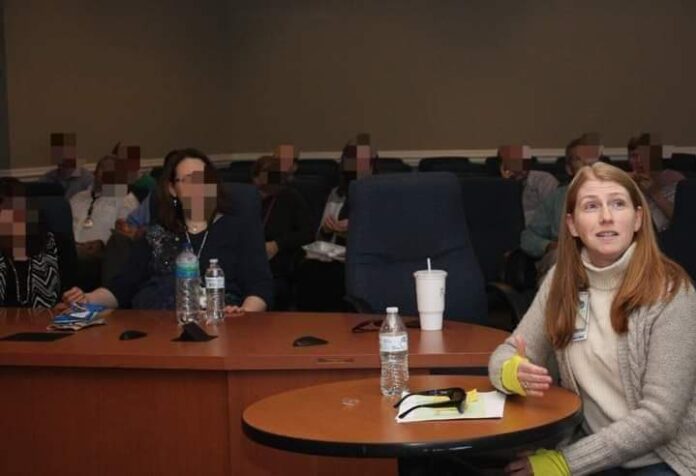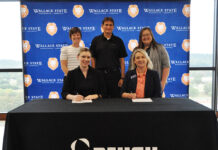HUNTSVILLE, Ala. – Many autistic people find they have a difficult time during Autism Awareness Month which was recently been changed last year to Autism Acceptance Month. The autistic community deals with harmful messaging from well-meaning companies that may not be including autistic people in their “Autism Acceptance.”
Holly Foshee founded Huntsville Autistic Adults in 2019 when it was just a meet-up group for autistic people. The organization is now a non-profit that provides educational and community building opportunities to the people of North Alabama who are either autistic themselves or influence the lives of autistic people in professional environments.
The organization conducts informational seminars for school and professional settings and provides parents and caregivers with information that may not be clearly communicated by those they care for. Foshee stated, “We have contacted all of the disability support services at the local colleges to let them know we exist so anyone coming in who may be autistic knows that we are a resource they can come to.”
The Huntsville Autistic Adults Meet-up group Facebook page answers questions and schedules meetups. About 70 people are currently in the Meet-up Facebook group. Foshee says, “That group is just for autistic people. It’s not for parents. It’s not a support group. We have conservatives, we have liberals, we have trans. All these groups of people and we’re all in there together and there’s no conflict because that’s not what we’re there to talk about.” There is also a Huntsville Autistic Adults public page.
Foshee spoke about some of the corporate messaging that is detrimental to autistics. The puzzle piece logo used by Autism Speaks is widely disliked by the autistic community. “We’re not a mystery and we’re not missing a piece.” In terms of corporate language, the autistic community overwhelmingly prefers identity-first language instead of person-first language (autistic person instead of person with autism).
Foshee says, “We’re autistic people. We’re autistic. We’re an adjective, not a prepositional phrase. They use ‘with autism’ to separate and put the autism in the back because it doesn’t define you. Actually, yes it does define us. It’s part of our wiring, part of our neurology. It affects every single thing we do because it’s our brain. Everything we see, smell, taste. It affects every aspect of our lives. We cannot separate ourselves from autism. They should not try to separate the word autism from us. It is an identity. It is who we are, but that’s not a bad thing. Saying ‘with autism’ makes it sound like it’s something you can leave at home like it’s an accessory, and like it’s a disease. It’s not cancer. I’ve had that, and I got rid of it. Now I’m not a person with cancer, I’m a person.”
She continued, “They act like it’s something that’s terrible and they have to dance around the words. If you can’t say the words, you’re telling me they have a negative connotation to you, and that’s a problem and it’s not ours because we don’t think autism is bad.” Foshee noted that any organized media events or fundraisers should consult with autistic adults first. “We understand our experiences better and we know what organizations are harmful.”
She also stated a dislike for the term special needs, saying, “We don’t have special needs. We have normal needs that are harder to meet in the environment in which the world has built without us in mind. I need silence the way another person would need silence. The difference is I hear more than they hear so it just takes more for me to meet that need.”
When asked how individuals could be more considerate, the first thing Foshee said was to not stare. “Some of us might walk different or might do something with our face or blink really hard. A lot of autistic people stim, and we don’t need to be stared at.” Another issue she noted was when a person will talk to an autistic person loudly as if they are deaf or ignore them and speak to the person next to them as if they are a translator. “It’s a big problem with all disabled people that someone will talk to the person that’s next to you.”
“If a person finds out you’re disabled in some way and they change who they are about you, there’s something wrong with them because they should by default treat everybody like something could be different about them. We should all be accepted for who we are,” she added. “The main thing we wish that people knew about autistic peoples’ experience is that they are all different and the experience is a lot. I mean we experience things more than other people experience things.”
Copyright 2021 Humble Roots, LLC. All Rights Reserved.






























